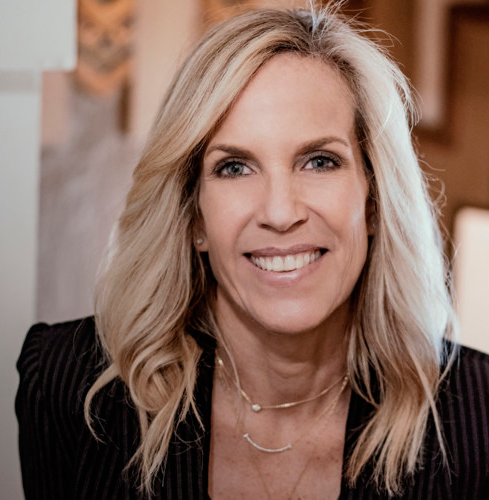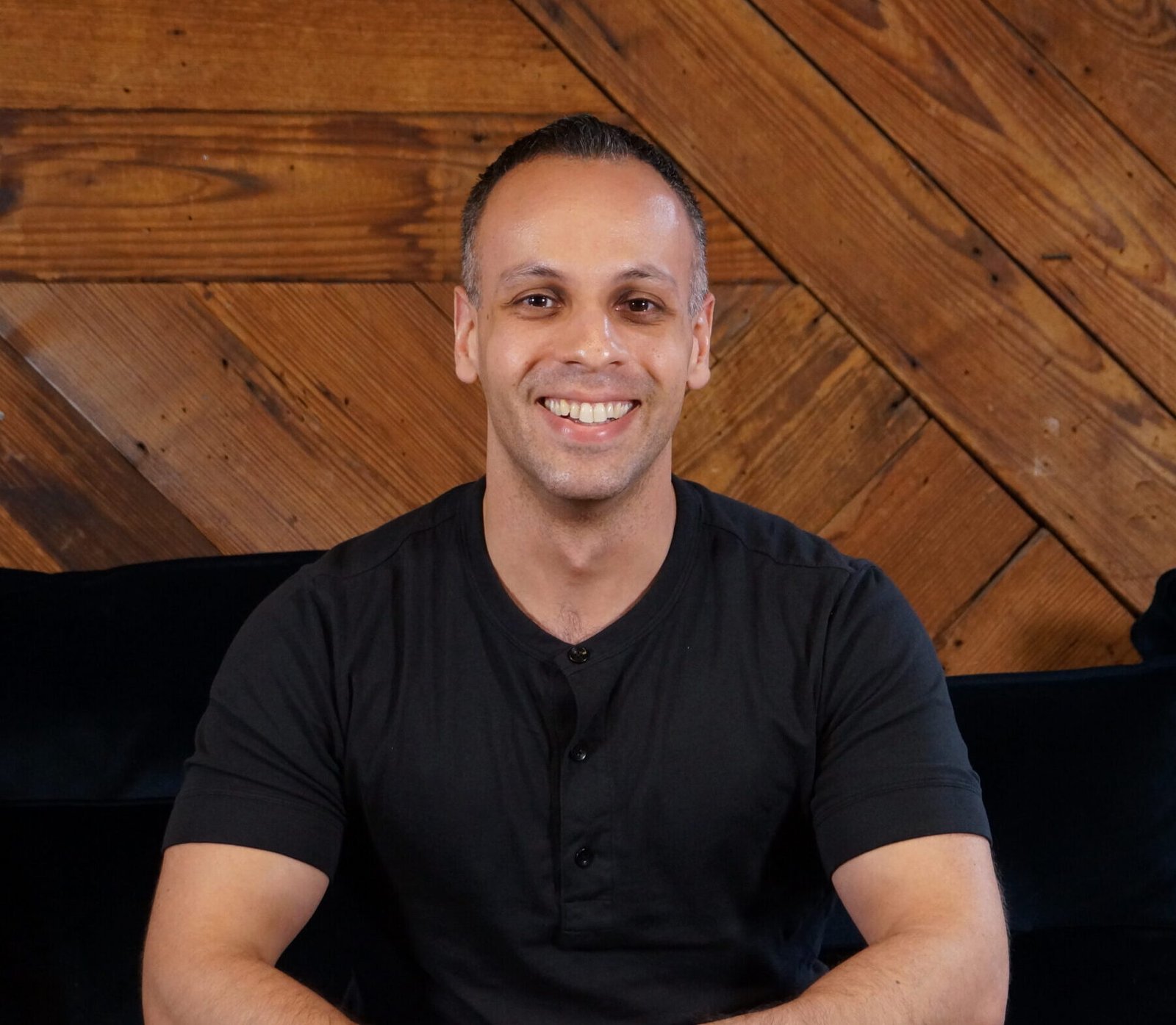I recently went one on one with Whitney Cathcart. Whitney is the Co-Founder and Chief Strategy Officer of 3DLOOK, a global leader in AI-first contactless body measuring and fit solutions. Whitney has spent nearly three decades working in executive leadership positions for some of America’s leading branded, celebrity licensing, and private label manufacturers delivering apparel products to the biggest names in retail.
Adam: Thanks again for taking the time to share your advice. First things first, though, I am sure readers would love to learn more about you. How did you get here? What experiences, failures, setbacks, or challenges have been most instrumental to your growth?
Whitney: I have worked in fashion from day one and have explored every aspect of this industry. I spent almost 30 years in sales, merchandising, and production.
I realized that the future of the industry was going to be built on digital technologies leading to more efficient processes and better customer experiences and that I wanted to be part of a company that was driving this evolution.
And that’s when I made the decision to leave the product side and move to technology.
The next few years were spent doing a deep dive into AI and 3D technologies. I also gained a proper understanding of the implication of these technologies in the apparel industry in general, while assessing the industry’s future and where I thought it was heading in terms of manufacturing and customer experience.
I also spent a lot of time talking to early-stage technology founders in the apparel ecosystem. I learned all I could about 3D design, fit technology and automation. I explored robotics, computer vision technologies, and other emerging 3D technologies in the immersive space.
That led me to 3DLOOK, and the rest, as they say, is history.
Adam: How did you come up with your business idea? What advice do you have for others on how to come up with great ideas?
Whitney: I think I was just looking for a way to use these technologies to enhance apparel manufacturing processes and particularly customer experience as it was clear to me that the industry was moving online, and that’s what got me interested in 3DLOOK. Back in 2016 it was a small startup and now it’s a leader in AI-first contactless body measuring and fit solutions. It was co-founded by Vadim Rogovskiy, Alex Arapov, and Ivan Makeev. I joined the team as an advisor and then as a co-founder.
3DLOOK began with the idea of a digital passport for anyone who has a smartphone that allows them to solve various tasks easily by using their body data: ordering clothing items, tracking progress in fitness apps, creating personal avatars for video games, and so on. It was evident quite early on that people love shopping online, but finding clothes that fit them perfectly continued to be a far-off dream, so the fashion sector is the first one to adopt the technology.
As far as advice is concerned, I believe that businesses are only successful when built on passion. If there’s something that you’re looking for that just doesn’t exist, it could be the next big idea. So when coming up with a business idea, ask yourself: does the solution to my problem exist? Is it a solution for what other people find to be a big problem?
Also, you have to really care about the problem you’re solving; building a startup company is incredibly hard, and produces many sleepless nights. You need to be focused and have the ability to deal with the huge highs and lows on any given day. Agility is key. Unless you are incredibly passionate about the problem, the product, and the journey, you’ll burn out quickly. It’s just entirely too much work, and you have to love that work because you’re going to work weekends and 16 hour days. If that becomes just a job for you, it’ll never become a successful company.
Adam: How did you know your business idea was worth pursuing? What advice do you have on how to best test a business idea?
Whitney: I spent thirty years in the industry, and sizing never made any sense to me, to begin with. I used to have to fit mannequins that were different from one retailer to another, which still blows my mind. So when I understood the core technology that 3DLOOK was building, I knew I wanted to be part of this company. Understanding fit is a critical component for a successful brand, and 3DLOOK allows them to make garments to actual consumer sizes instead of averages. For me, it was a clear data play from the beginning.
Any idea that’s worth its weight must be tested and tweaked to perfection. It’s important because you want the customers and end-users to love it. Make sure they find it valuable, and that’s an iterative process. Never stop testing and gathering feedback as your product evolves.
Fashion’s the same way. An excellent product is iterative, always changing. You can’t think that the sale is the last you’ll ever hear of it because after that starts the constant feedback loop from end-consumers.
Always try to do better, and create better experiences, even when it comes to small features. At the end of the day, if the person using the technology doesn’t find it valuable, it doesn’t matter how good your idea is.
Adam: What are the key steps you have taken to grow your business? What advice do you have for others on how to take their businesses to the next level?
Whitney: You need really good talented people to pull it off. Hire the right people who are the very best at what they do and have the determination and passion to build and believe in the vision.
I think, at the end of the day, you also need a grip on reality because building a company is really, really hard. You need to be able to not take things personally and have tenacity, drive, and resiliency to survive those days where you feel like you can’t get through it.
My advice to people who want to go out and build a business is to have patience. Ensure you’re really passionate about what you’re making, do your research, and understand your market.
Adam: What are your best sales and marketing tips?
Whitney: The customer’s always right.
I think the best thing that sales and marketing people can do is listen. Have empathy towards your customer’s problems and understand who they are and where they are coming from.
I am not just saying that. Look around you, and you’ll see that the most successful companies have great customer success teams.
Adam: In your experience, what are the defining qualities of an effective leader?
Whitney: Patience and the ability to really listen.
The most inspiring leaders have several things in common and one of them is their ability to really listen to other people and to empathize with them. I also think being in control of the way you respond to people is really important.
Adam: How can leaders and aspiring leaders take their leadership skills to the next level?
Whitney: I’ll give you my own personal experience in this. I went from managing roles to executive roles and overseeing large teams. Through that, I spent a lot of time reading leadership books and gaining insights from people I thought were outstanding leaders. I had some amazing mentors both inside some of the companies I worked for and also on the outside.
I learned that you can’t have an ego in a leadership role. If you really want to be an effective leader, you need to bring people up with you, and you do that by listening to them and being patient. Good leaders are very good at siphoning feedback and picking through it to find ideas that work for company evolution.
Adam: What is your best advice on building, leading, and managing teams?
Whitney: I think it’s imperative to ask people how they would handle a situation or problem. If you set your teams up to be empowered by solving their own problems, you will see more productivity, more creativity, and happier employees. I have found that micromanaging people is not effective at all.
I can’t emphasize this enough: really productive teams are managed by leaders who ask a lot of questions and understand that the feedback they get from their teams is meaningful.
It’s giving the people that work for you the ability to actually build their own careers and make a difference.
Adam: What are your three best tips applicable to entrepreneurs, executives, and civic leaders?
Whitney: I think you need different skill sets to master those roles.
Your skills as an entrepreneur are different from working as an executive in a corporate setting. As an entrepreneur, your role is to think outside the box and solve problems that arise daily when trying to build products and grow teams and revenue. You also need to be flexible and have a lot of grit.
In an executive role in a larger corporation where there is more process, I have found that it’s critical to inspire your teams and empower them to become managers and continued learners. The difference also comes down to risk. There is more risk in being an entrepreneur in a startup than choosing the path of big business where paychecks can be more consistent. Both have pros and cons. It really depends on an individual and what inspires them, where they see their career.
It rolls back to what’s important to you in your life.
Adam: What is the single best piece of advice you have ever received?
Whitney: I worked for a very successful man, on and off, for 2 decades. He gave me advice that I have always taken with me, and it was fantastic counsel.
He taught me something about hiring people and what to look for in resumes. You count the number of “I’s” versus “Our” or “Team.” You never want to hire somebody who uses the word “I” more than 3 times in their cover letter. That person will never be a good team member or a team leader.
It’s not even only about a resume, but life in general. When you’re talking to somebody, how often do you hear the word “I” or “Me” come from them, versus “Our”?
When building a company, it’s vital to be a “we” type of person.
Adam: Is there anything else you would like to share?
Whitney: Having spent most of my career in larger corporate cultures and now being a part of an amazing startup team, I’d offer the following advice.
Very few companies are big hits in year one or two. It’s a 5-10 year journey. Whatever it is you’re out to build, make sure you really love it and don’t mislead yourself into thinking that you’re going to make billions of dollars in the first couple of years.
Many young entrepreneurs are after the dream of becoming the next Mark Zuckerberg. The reality is that most successful entrepreneurs have made a lot of mistakes first and failed. That experience of failure is critical to long term success! The startup route is stressful and takes great commitment and hard work. It is also incredibly rewarding. Our team at 3DLOOK is so passionate and dedicated. For me, it is certainly the most rewarding work of my career.









